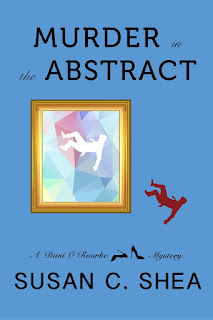QUESTION: Point of view is pesky. What's the hardest aspect
of POV you deal with in your storytelling with one or more POV? By Catriona
 |
| Forgive the indulgence. They made this for me at Malice, when I was toast-mastering. When am I going to get to use it? It's like a tiara. |
Truth is I'm going to have to stretch a point to answer this week's question, because I've never used more than one point of view in a single story. Not really. I've had one character briefly paraphrase another's words, in effect adopting their voice for a bit, but that's about it.
I've tried. When I was beginning to write The Child Garden, the plan was to have two POV characters - Gloria and Stig - and write chapter about in close third person. I still think that would have been interesting. But I'm quite an organic writer (like a steaming compost heap is organic) and I was a quarter of the way in before I realised it was all Gloria's point of view and she was talking. I loved her voice though, which was a consolation. I call it "first person unaware". In other words she speaks completely openly and reveals much more than she knows.
It's like the opposite of that cheaty veil-drawing that lets some crimewriters hide their plotting. You know: "I read the letter through to the end, sumarised it for my trusty sidekick and then burned it on the fire, before going out onto the moor to do what it had commanded." Blech.
I don't notice POV unless its badly done, usually. I've got a close friend*- a fellow writer; you know who you are - who can't read 1st person when she's writing. I've lost count of the number of times I've recommended a book, then she asks about POV and I think hard and say "no clue". And I just checked my standalones because, apart from Gloria in The Child Garden, I wasn't sure how many were 1st and how many 3rd. (Two are 3rd. Four are 1st. Of the WIPs . . . I dunno. I'd have to check. (I hope someone reassures me in the comments that this is normal.))
*I've got another close friend - a fellow writer; you know who you are - whose most frequent negative comment on novels is "All the head-hopping!", delivered with hand gestures, golfball eyes and much despair.
A few fancy-schmancy POV choices I've thought were particularly well done were: Hilary Mantel's very, very, very close 3rd in Wolf Hall. Go, Thomas!; Lionel Shriver's kinda nearly second in the epistolary (and outstanding imho) We Need To Talk About Kevin; and Irvine Welsh's complete control over the three ring circus that was Trainspotting.
I'm such a POV wimp. The most ambitious thing I've ever done is write a one page prologue (settle down, Elmore) that was "close no person". I wanted to hide who it was that was experiencing the action and who it was driving it. I ended up with:
"The walls, rough-formed from great black
lumps of stone, ran dank and wet like the flanks of a sweating beast. Single
drips and rivulets coursed the length of the stairway, three full storeys and
more, sliming the steps and fouling the air.
Footsteps skittered down a half-flight’s
turn, then slipped and stumbled the next half
to a respite at the dark landing. Terrified breaths filled the close
damp, breaking into whimpers and sinking into groans.
When at last those ragged breaths were
caught, into the silence came a second set of footsteps, the steadier tread of
a pursuer advancing, no halting, no hurry.
‘I’m sorry. But I have to.’ The voice wavered,
as though from a recent shock, still reverberating.
The voice that came in answer was flat and
dead. ‘No. I am sorry. But I cannot allow it.’
There was a scuffle, quick and grim, then
a rush of unruly noise filled the tower: gasps and shrieks; scrapes and thuds.
Last, a resonant crack! like a
coconut, heavy with milk, raised and smashed. Then nothing."
And I couldn't have kept it up much longer without screaming.



